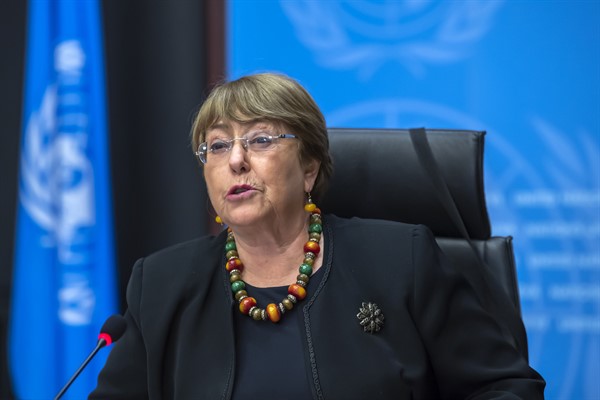For the past week, China’s state-controlled media has been gushing about the benefits of the recent visit to the country by Michelle Bachelet, the United Nations’ high commissioner for human rights. Its reaction summarizes the results of the disastrous trip to a country that stands accused of committing genocide against ethnic Uyghurs and other Turkic minorities in the northwest Xinjiang region; crushing democratic freedoms in Hong Kong; smothering human rights in Tibet; and engaging in increasingly authoritarian behavior across the rest of the country.
Activists had hoped Bachelet’s visit—the first by a U.N. human rights commissioner in 17 years—would give the U.N. greater access to credible information on the Uyghurs’ plight, or at least the opportunity to offer a strong statement on the Chinese government’s alleged abuses. Instead, her visit has resulted in disaster, not just for the Uyghurs, but for all those seeking help from the international community in defending against Beijing’s wide-ranging assaults on human rights.
A leading article in China Daily, a state-owned media outlet, on Monday—which was misleadingly titled “Bachelet’s trip enhances understanding of country’s human rights development”—claimed that the trip “provided an opportunity to see the real Xinjiang,” a region it says “has been smeared with lies fabricated under the guise of protecting human rights.” Bachelet, however, has repeatedly noted that her visit was “not an investigation” but an “opportunity to hold direct discussions—with China’s most senior leaders—on human rights.” Reporting on the visit, and the Chinese government’s own statements, suggest that her travel throughout the country was tightly controlled by Beijing, and that she was only able to attend pre-arranged meetings with approved contacts.

